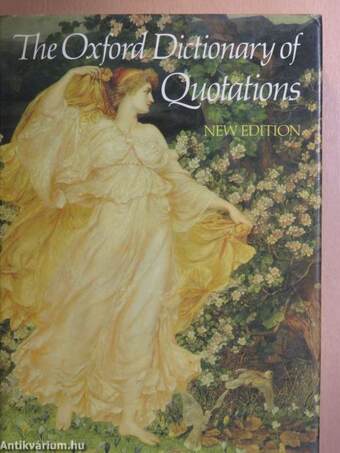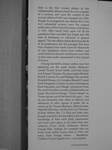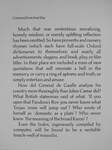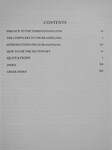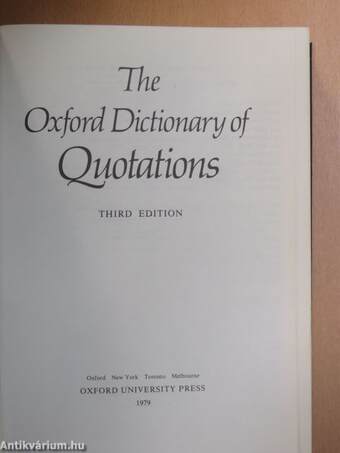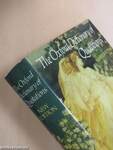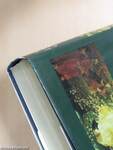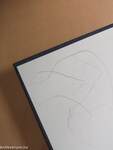1.066.715
kiadvánnyal nyújtjuk Magyarország legnagyobb antikvár könyv-kínálatát

VISSZA
A TETEJÉRE
JAVASLATOKÉszre-
vételek
The Oxford Dictionary of Quotations
| Kiadó: | Oxford University Press |
|---|---|
| Kiadás helye: | Oxford |
| Kiadás éve: | |
| Kötés típusa: | Vászon |
| Oldalszám: | 907 oldal |
| Sorozatcím: | |
| Kötetszám: | |
| Nyelv: | Angol |
| Méret: | 24 cm x 17 cm |
| ISBN: | 0-19-211560-x |
naponta értesítjük a beérkező friss
kiadványokról
naponta értesítjük a beérkező friss
kiadványokról
Előszó
TovábbFülszöveg
Here is the first revised edition of this indispensable reference book for over a quarter of a century; and since the content of the second edition of 1953 was changed very little, though its arrangement was altered, this is the first substantial revision since the original publication of the Oxford Dictionary of Quotations in 1941. After nearly forty years not all the quotations then included any longer pass the tests of familiarity or relevance or general appeal. This new edition retains about two-thirds of its predecessor, but the passages that have been dropped have made room for thousands of new quotations drawn from authors and works that have become well known since 1941 or that were under-represented in the original Dictionary.
Among twentieth-century writers now first appearing are the poets Auden, Betjeman, Lowell, Pound, Stevie Smith, and both Dylan and Edward Thomas; the playwrights Beckett, Brecht, Coward, Fry, and Rattigan; the novelists Elizabeth Bowen, Ivy... Tovább
Fülszöveg
Here is the first revised edition of this indispensable reference book for over a quarter of a century; and since the content of the second edition of 1953 was changed very little, though its arrangement was altered, this is the first substantial revision since the original publication of the Oxford Dictionary of Quotations in 1941. After nearly forty years not all the quotations then included any longer pass the tests of familiarity or relevance or general appeal. This new edition retains about two-thirds of its predecessor, but the passages that have been dropped have made room for thousands of new quotations drawn from authors and works that have become well known since 1941 or that were under-represented in the original Dictionary.
Among twentieth-century writers now first appearing are the poets Auden, Betjeman, Lowell, Pound, Stevie Smith, and both Dylan and Edward Thomas; the playwrights Beckett, Brecht, Coward, Fry, and Rattigan; the novelists Elizabeth Bowen, Ivy Compton-Burnett, Conrad, Scott Fitzgerald, Graham Greene, Hemingway, Rose Macaulay, and Waugh. Quotations from the world of politics are also included (who can forget 'the wind of change', 'I have a dream', or 'Power grows out of the barrel of a gun' - but do you remember who, when, or where?), and utterances of other figures in public life as various as Sir Thomas Beecham, Albert Einstein, Marshall McLuhan, and the first Lord Thomson of Fleet. Writers like T. S. Eliot and Yeats who, though included in the last edition, did not have knowledge of their work fairly represented, now have more space; as do some from past centuries (Clare, Emily Dickinson, Donne, George Eliot, Trollope, for example) who are much more widely known than in 1941; and many more foreign writers - Baudelaire, Chekhov, Proust, Sappho even - are included.
Continued on back flap
Continued from front flap
Much that was sententious moralizing, homely wisdom, or merely uplifting reflection has been omitted. So have proverbs and nursery rhymes (which each have full-scale Oxford dictionaries to themselves) and nearly all advertisements, slogans, and book, play, or film titles. In their place are included a mass of new quotations that will resonate a bell in the memory, or carry a ring of aptness and truth, or simply entertain and amuse.
How did General de Gaulle analyse his country more thoroughly than Julius Caesar did? What British statesman said of what, 'If you open that Pandora's Box you never know what Trojan orses will jump out'? Who wrote of herself as 'domestic as a plate ? Who never knew 'the meaning of the broad Karoo' ?
Even the Index, ingeniously compiled by computer, will be found to be a veritable treacle-well of trouvailles. Vissza



